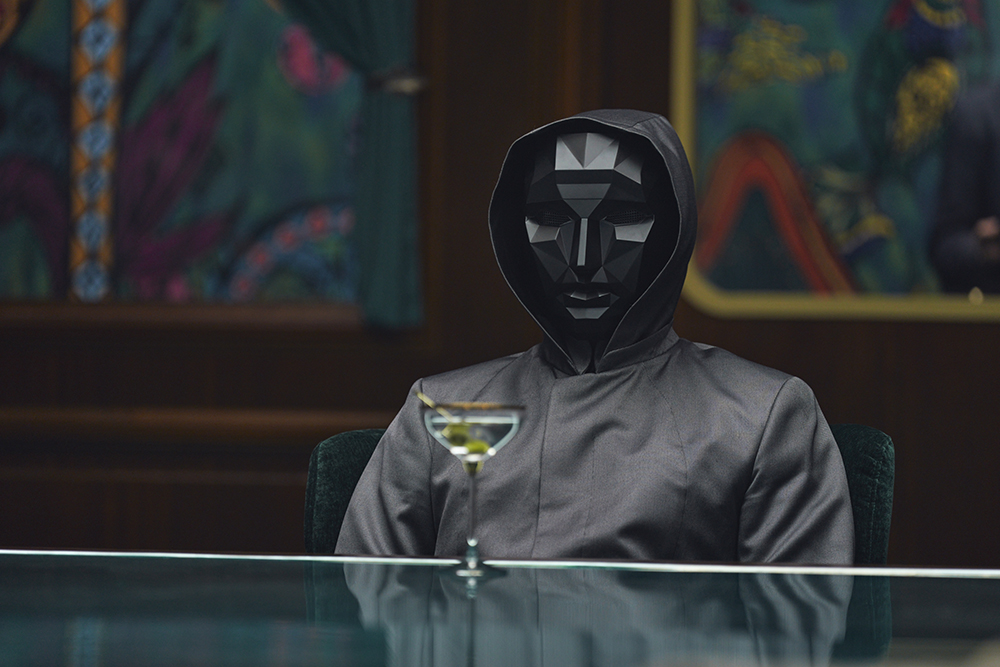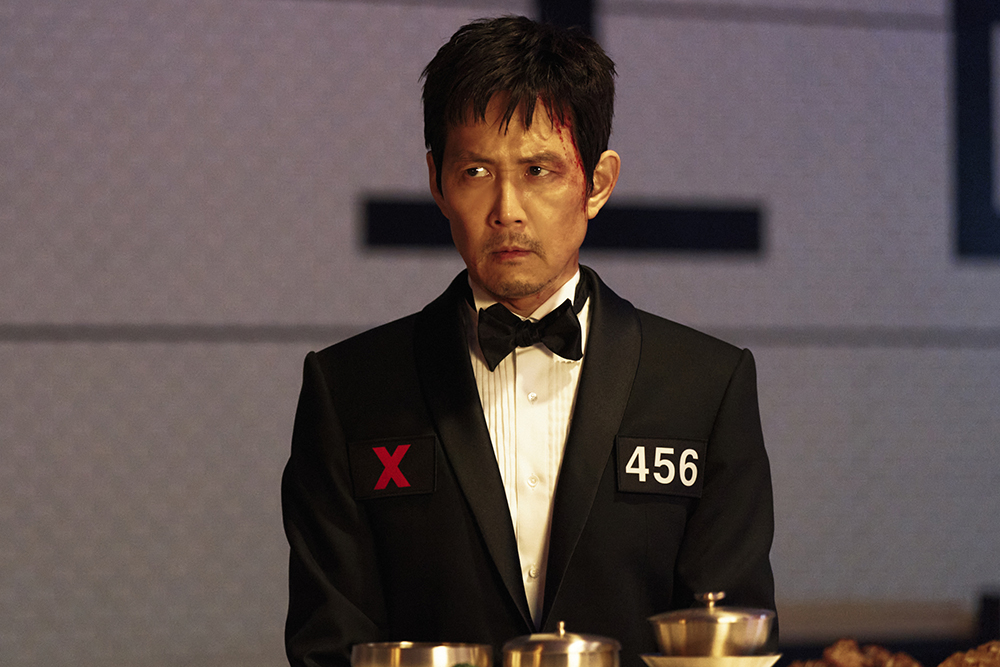Netflix - Squid Game: The Beginning of the End – A Deep Dive into Season 3's Approaching Carnage and the Legacy of a Global Phenomenon
By Mulder, 20 june 2025

When Hwang Dong-hyuk first conceived Squid Game, the world was a very different place—yet, strangely enough, the same rot in capitalist structures, social inequality, and personal desperation he experienced back in 2009 resonates even louder today. It’s in this deeply personal origin story that the upcoming third and final season, dropping on June 27, 2025, draws its most potent force. What began as a script scribbled in debt-induced frustration inside a manhwabang has morphed into a full-blown global phenomenon, one that has sparked think pieces, Halloween costumes, toy lines, video games, and even reality shows. But despite the international spotlight, Squid Game has always remained grounded in one truth: this is a story about losers—about people pushed to the edge by systems that were never built for them to win.
Lee Jung-jae's return as Seong Gi-hun once again anchors the story, with the character now completely transformed by the events of the past. No longer the hapless gambler or reluctant hero of the first season, Gi-hun has become a man on a mission, scarred and sharpened by revenge. The second season saw him diving back into the deadly game, unwilling to let it continue unchecked after learning the horrifying truths behind it. That season ended with tension at a boiling point—an existential and moral confrontation between Gi-hun and Lee Byung-hun’s enigmatic Front Man, Hwang In-ho. Season three promises not just to escalate the violence, but to bring long-awaited closure. The new twist? There's a traitor among the inner ranks, a detail that introduces paranoia into an already dangerous environment. At this point, even the masked guards can’t trust each other, and Gi-hun’s ally-turned-rival, detective Hwang Jun-ho, is creeping ever closer to the island’s heart—still unaware of the betrayal awaiting him.

The show’s creator, Hwang Dong-hyuk, has confirmed that this final chapter is where he pulls no punches. Filmed back-to-back with season two, the third season isn’t just a continuation—it’s the culmination of a vision that began fifteen years ago. Gi-hun’s inner conflict now reflects Hwang Dong-hyuk’s own duality, split between hope and despair, justice and cynicism. As he once shared, the characters of Gi-hun and Sang-woo represented two sides of himself: one a desperate son raised in poverty, the other a high-achieving graduate bearing the crushing weight of expectations. Now, as the final season looms, that internal war spills out into the game’s final showdown—one less about winning and more about meaning.
Perhaps one of the most intriguing elements teased for season three is the introduction of Cheol-su, the male counterpart to the already iconic Young-hee robot doll. First glimpsed in a haunting post-credit scene of season two, Cheol-su’s arrival confirms that the franchise’s unique blend of nostalgic innocence and grotesque horror remains intact. And with more elaborate sets, new nightmarish children’s games, and the return of the VIPs, Squid Game seems poised to escalate the spectacle while never letting go of its satirical bite. Behind the scenes, Chae Kyoung-sun’s production design continues to elevate the show beyond mere blood sport, transforming playgrounds into psychological battlefields, tunnels into veins of capitalism’s monstrous body. Her decision to draw inspiration from ant colonies and 1970s South Korean school architecture breathes a subtle historical authenticity into even the most surreal visuals.

The cast, too, reflects the show's global ambition. Season three sees Lee Jung-jae reuniting with key players like Wi Ha-joon, Gong Yoo, and Lee Byung-hun, while adding new faces such as Kang Ha-neul, Park Sung-hoon, and Im Si-wan, ensuring a rich blend of character arcs and emotional stakes. Even controversial choices—like the casting of T.O.P, the former BigBang member with a tumultuous past—signal the show’s embrace of layered, potentially divisive personas. After all, Squid Game was never about clean heroes or villains. It’s a show where every character is both victim and participant, forced into a twisted theater of survival that strips away all illusion of nobility.
Musically, Jung Jae-il returns with a score that promises to be even more bizarre and haunting. Drawing again from classical influences—like Haydn and Strauss—but blending them with elements rooted in childhood memory and theatricality, the music remains a vital part of the show’s identity. His theme "Way Back Then," with its eerie innocence, feels like a music box left spinning in a war zone—perfectly encapsulating the tragicomic tone that defines Squid Game’s best moments. And with new additions like "Nessun Dorma" and "Time to Say Goodbye," the score for season three aims to be more than mood-setting—it’s an operatic elegy to the very themes of power, spectacle, and societal decay.

In many ways, season three is where the series comes full circle—not just narratively, but culturally. Squid Game was never just a K-drama success story. It became a symbol of South Korea’s cultural dominance in the streaming age, joining BTS and Parasite in rewriting the rules of global entertainment. Netflix has capitalized on this momentum through reality game shows, video game spin-offs, and even an English-language adaptation spearheaded by David Fincher. Yet despite the glitz and merchandising, Hwang Dong-hyuk has managed to retain the series’ razor-sharp social commentary. Season three, he promises, will be about people pushed past their breaking point in a world that demands cruelty as currency—and whether redemption is even possible when the system itself is the villain.
And maybe that’s the final question Squid Game will pose: can the cycle be broken? Can Gi-hun truly end the game, or will his rebellion simply feed into the same spectacle he once sought to destroy? In an era when audience attention is the new currency, perhaps no show understands the stakes better than Squid Game. Season three doesn’t just promise more death and drama—it offers a mirror to our darkest tendencies, asking what we’re willing to endure, or sacrifice, just to win. And maybe, just maybe, what winning even means anymore.

Synopsis :
The third and final season of Squid Game follows Gi-hun (Lee Jung-jae) after losing his best friend in the game and being driven to utter despair by The Front Man (Lee Byung-hun), who was hiding his true identity to infiltrate the game. Gi-hun persists with his goal to put an end to the game, while the Front Man continues onto his next move and the surviving players' choices will lead to graver consequences with each round. The world eagerly awaits to see the grand finale written and directed by Director Hwang Dong-hyuk, who has vowed to bring the epic story to its deserved closure. Can we hope for humanity in the cruelest of realities? Fans all over the world are counting the days until the final answer is revealed.
Squid Game
Createdn Written, directed by Hwang Dong-hyuk
Producers : Han Heung-seok,, Kim Ji-eun (Season 2)
Executive producers ; Kim Ji-yeon, Hwang Dong-hyuk
Starring Lee Jung-jae, Wi Ha-joon, Lee Byung-hun
Music by Jung Jae-il
Cinematography : Lee Hyung-deok (Season 1), Kim Ji-yong (Season 2)
Editor : Nam Na-yeong
Production company : Siren Pictures Inc
Network : Netflix
Release : September 17, 2021 –present
Running time : 33–76 minutes
Photos : Copyright Netflix

